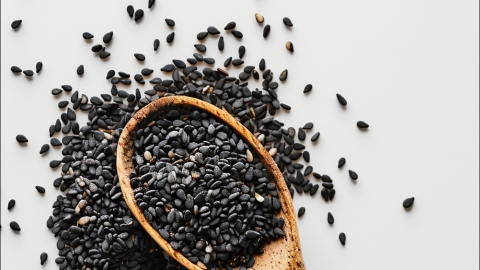Can patients with high blood lipids eat black sesame seeds?
Hyperlipidemia refers to hyperlipidemia. Generally speaking, patients with hyperlipidemia can eat black sesame seeds, but should do so in moderation. The specific analysis is as follows:

Black sesame seeds are rich in unsaturated fatty acids, which can reduce the levels of cholesterol and triglycerides in the blood, thus helping to prevent cardiovascular diseases. In addition, linoleic acid in black sesame seeds can accelerate cholesterol metabolism, help remove deposits on blood vessels, and benefit the health of patients. Therefore, it is feasible for patients with hyperlipidemia to consume black sesame seeds in moderation.
Although black sesame seeds are high in nutritional value, they are also relatively high in fat. Overconsumption may worsen lipid abnormalities and be detrimental to disease management. In this case, patients should adjust their dietary structure under the guidance of a doctor or nutritionist and reasonably manage the intake of high-fat foods such as black sesame seeds.
It is recommended that patients with hyperlipidemia follow the principles of low-fat, low-sugar, and high-fiber diets in their daily meals. At the same time, they should appropriately increase physical activity, such as swimming, walking, or jogging, which can help control blood lipid levels.








